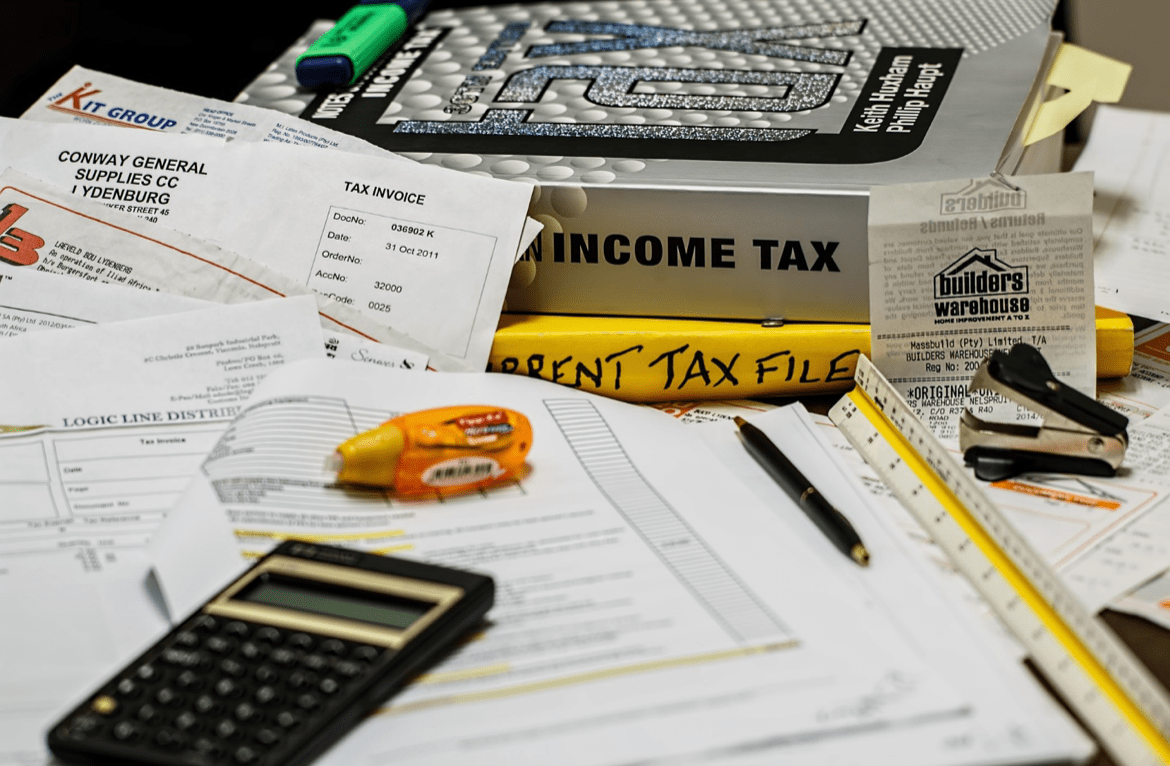Health
The True Benefits of Decluttering for Your Mental Health and Wellness

There’s no doubt that we are all busy with things to do and tasks to accomplish, not just in our work but also, more importantly, in our personal lives. And in our increasingly busy and demanding lives, clutter can accumulate quickly. This clutter can be overwhelming and contribute to feelings of stress and anxiety, especially over time. It can- and will- affect us greatly if we’re constantly surrounded by it, whether in our workspaces or living spaces. On the other hand, it’s no secret that a tidy working and living space can create a sense of calm – but the benefits of decluttering go far beyond just having a neat workspace and home. So what are the true benefits of decluttering for your mental health and wellness? Let’s find out.
Reduced anxiety and stress
Clutter can be a significant source of our stress and anxiety. Imagine how a cluttered space can make it difficult to find what you need, and being surrounded by chaos and disorder can quickly overwhelm us. But when you declutter your space, you can reduce the visual stimuli around you and create a more calming environment. You’ll be able to find what you need more easily, and you’ll feel more in control of your surroundings. And it’s easier to declutter nowadays with help from a skip hire service (such as www.betaskips.co.uk, which will remove all the clutter and clear out your surroundings much faster.
Enhanced creativity
You can also enhance your creativity when you are not surrounded by clutter at all hours of the day. A cluttered space can stifle creativity, and when there’s too much clutter around, it can be difficult to come up with new ideas, much less think clearly! But by decluttering your space, you’ll have more room to think and create. You’ll be able to see things more clearly, which can lead to new and more innovative ideas.
Improved focus and productivity
It can be a real challenge to focus on the task at hand when your space is cluttered. The clutter can distract you, and you may find yourself constantly shifting your attention to different items or belongings around the room. But when you declutter, you can create a more focused environment that allows you to concentrate on what you’re doing.
Improved sleep quality
Did you know that too much clutter can also impact the quality of your sleep? A cluttered bedroom can make it difficult to relax, and it can even contribute to insomnia. But when you have a cleaner and more organized bedroom, it results in a more serene environment conducive to rest and relaxation. You’ll be able to fall asleep more easily (and stay asleep for a longer time), which can lead to greater energy and productivity during the day.
Increased mindfulness
Decluttering your space requires a certain level of mindfulness because it involves being aware of your surroundings, identifying what’s important (and what’s not), and making intentional decisions about what to keep and what to let go of. This level of mindfulness can extend beyond just decluttering your space and can help you cultivate greater mindfulness in other areas of your life! By being more mindful, you’ll be able to make better decisions and live a more intentional, fruitful life.
Health
Snack Smarter: The Rise of Low-Calorie Almond Butter for Active Lifestyles

The snack aisle is shifting. For those who balance a busy life with a commitment to health and fitness, the rise of low-calorie almond butter offers a new way to snack smarter. American Dream Nut Butter is at the center of this change, blending clean ingredients with dessert-inspired flavors and added protein to create almond butter that is both nutritious and enjoyable.
Why Almond Nut Butter Is Key to Clean Eating
As consumers become more mindful of their food choices, the spotlight is increasingly on nutrient-dense snacks that provide sustained energy without excess calories. Almond butter, especially in low-calorie varieties, meets this demand by offering a rich source of healthy fats, fiber, and protein in a compact form. Compared to traditional spreads, such as peanut butter, almond butter often provides a smoother, lighter alternative with a different nutritional profile.
For those who track macros or embrace meal prepping, almond nut butter fits neatly into their plans. Its balance of fats and protein supports satiety, helping to keep hunger at bay between meals or during workouts. American Dream Nut Butter elevates this concept with high-protein options that blend the wholesome qualities of almonds with a subtle sweetness inspired by classic desserts.
How Much Protein is in Low Calorie Almond Butter for High Performance?
One common question around almond butter is: how much protein does almond butter contain? While natural almond butter provides a moderate protein boost, American Dream Nut Butter takes it a step further by creating blends that enhance protein content without relying on artificial sweeteners or fillers. This approach suits those seeking fuel for recovery or sustained energy throughout their day.
These protein-enhanced almond butters can work as a pre-workout snack, a post-exercise treat, or simply as a midday pick-me-up that aligns with a health-conscious lifestyle. The brand’s small-batch production method ensures each jar maintains a fresh, creamy texture that spreads easily or drizzles beautifully over everything from oatmeal to fruit.
Buy Almond Butter: Unique Flavors from American Dream

American Dream Nut Butter distinguishes itself with unique flavor profiles, such as Cinnamon Toasties and Cookie Batter. These offerings embrace the idea that healthful snacks can still delight the palate, using clean, natural ingredients to create indulgent taste experiences without sugar bombs or artificial additives. Each batch is hand-whipped in-house, reflecting the brand’s commitment to quality and care.
Their dedication to natural flavors and nutrient density allows consumers to enjoy a dessert-inspired snack while keeping their wellness goals intact. Whether you’re looking to buy almond butter that tastes like a treat or are curious where you can find almond butter crafted with both nutrition and flavor in mind, American Dream Nut Butter offers an accessible option.
Almond Nut Butter: Fuel for Athletes and Busy Parents
Almond butter’s versatility makes it appealing for a wide range of active lifestyles. For athletes, it provides a balanced blend of nutrients that supports energy and recovery without unwanted additives. For busy parents or professionals juggling multiple demands, it’s a convenient, clean snack that fits into hectic schedules without compromise.
The brand’s YouTube channel offers video insight into how these nut butters are crafted, revealing the hands-on process that ensures quality in every jar. By choosing American Dream Nut Butter, consumers support a product that embodies family values and a personal story of overcoming dietary challenges to create wholesome alternatives that everyone can enjoy.
Where Can You Find the Best Almond Butter & More? The Future Is Here
The growing interest in low-calorie nut butter reflects a broader shift in how people approach snacking—valuing nutrition, flavor, and mindful eating in equal measure. American Dream Nut Butter’s approach, which combines protein-rich formulas with all-natural ingredients and enticing flavors, shows how almond butter, peanut butter, and cashew butter can evolve from a niche health food into a daily staple for those who want to snack smarter.
For more on the evolving nut butter market and how it aligns with fitness trends, check out this feature on the rise of healthy high-protein nut butter. To explore American Dream Nut Butter’s full collection and shop their almond butter selections, visit their website.
American Dream Nut Butter invites you to experience healthy nut butters that strikes a balance between enjoyment and mindful nutrition—perfect fuel for active days and wellness routines alike.
*Images sourced from American Dream Nut Butter
-

 Tech4 years ago
Tech4 years agoEffuel Reviews (2021) – Effuel ECO OBD2 Saves Fuel, and Reduce Gas Cost? Effuel Customer Reviews
-

 Tech6 years ago
Tech6 years agoBosch Power Tools India Launches ‘Cordless Matlab Bosch’ Campaign to Demonstrate the Power of Cordless
-

 Lifestyle6 years ago
Lifestyle6 years agoCatholic Cases App brings Church’s Moral Teachings to Androids and iPhones
-

 Lifestyle4 years ago
Lifestyle4 years agoEast Side Hype x Billionaire Boys Club. Hottest New Streetwear Releases in Utah.
-

 Tech7 years ago
Tech7 years agoCloud Buyers & Investors to Profit in the Future
-

 Lifestyle5 years ago
Lifestyle5 years agoThe Midas of Cosmetic Dermatology: Dr. Simon Ourian
-

 Health6 years ago
Health6 years agoCBDistillery Review: Is it a scam?
-

 Entertainment6 years ago
Entertainment6 years agoAvengers Endgame now Available on 123Movies for Download & Streaming for Free
